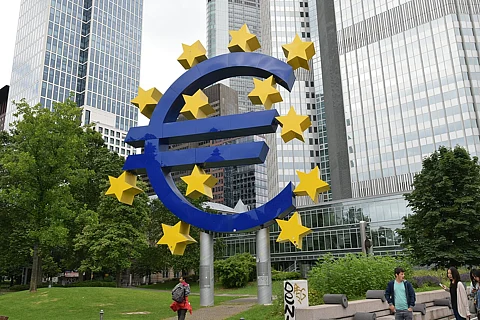

The European Commission has approved Bulgaria’s accession to the Eurozone, paving the way for the country to adopt the euro on January 1, 2026. The decision makes Bulgaria the 21st member of the single-currency bloc after years of delays due to political instability and missed economic targets.
“Today we have reached a crucial milestone on our path to join the euro, marked by years of continuous efforts and strict fiscal discipline,” Bulgarian Prime Minister Rosen Zhelyazkov told the Financial Times. “The introduction of the euro will improve economic stability and create stronger fundamentals for investments and economic growth.”
The European Central Bank (ECB) and the Commission confirmed on Wednesday that Bulgaria has met all necessary conditions for euro adoption. Final approval from eurozone finance ministers is expected in July.
Bulgaria’s journey toward euro adoption has been fraught with setbacks, including political turbulence and resistance from populist factions. The country has held seven elections in the past four years, with successive unstable governments delaying economic reforms.
“Bulgaria is meeting all the convergence criteria to become the 21st member state of the euro area, which is indeed a major milestone,” said EU Economy Commissioner Valdis Dombrovskis. “It’s good news for Bulgaria, bringing tangible benefits for citizens and businesses… [and] shows the euro area itself is strengthening.”
However, opposition remains strong among pro-Russian and nationalist groups. At a recent rally in Sofia, thousands protested against euro adoption, with Kostadin Kostadinov, leader of the pro-Russian Vazrazhdane party, declaring: “Bulgaria has risen and declared: Freedom, we choose the Bulgarian lev.”
President Rumen Radev has also called for a referendum on the issue—a move dismissed by the government as political sabotage.
To join the Eurozone, EU members must demonstrate economic convergence, including controlled inflation, currency stability, and sustainable public finances. Bulgaria initially failed to meet inflation targets in 2024, delaying its accession by a year. However, inflation slowed to 3.5% in April, fulfilling the final requirement.
A Commission report confirmed Bulgaria’s readiness but warned of persistent challenges, including a weak business environment, labor shortages, and an underdeveloped capital market. Despite these issues, the report noted Bulgaria’s flexible labor market as a strength that could aid economic adjustment.
The final approval process will involve key EU bodies:
June 19-20: ECOFIN discusses Bulgaria’s accession.
June 26-27: The European Council reviews the decision.
July 8: The European Parliament votes on Bulgaria’s entry.
Once approved, Bulgaria will begin dual pricing in leva and euros ahead of the 2026 transition.
Bulgaria, the EU’s poorest member, has pegged its currency to the euro since 1997. While recent polls show 63% support for the switch, nearly 35% remain opposed, fearing economic instability.
EU leaders, however, have hailed the move as a step toward deeper integration. “Thanks to the euro, Bulgaria’s economy will become stronger,” said Commission President Ursula von der Leyen.
Bulgaria’s accession follows Croatia’s entry in 2023, marking another expansion of the eurozone since its 2002 launch.